Copper oxide
Does copper oxidation noticeably affect antenna performance? The small transmitting loop with its high Q, low resistance nature provides an ideal way to test. What’s needed is an antenna that has been around long enough to oxidize a bit. Small changes in the conductivity will be very apparent in the small antenna loop represented by the resulting bandwidth.
Once upon a time six years ago…
…I built this…
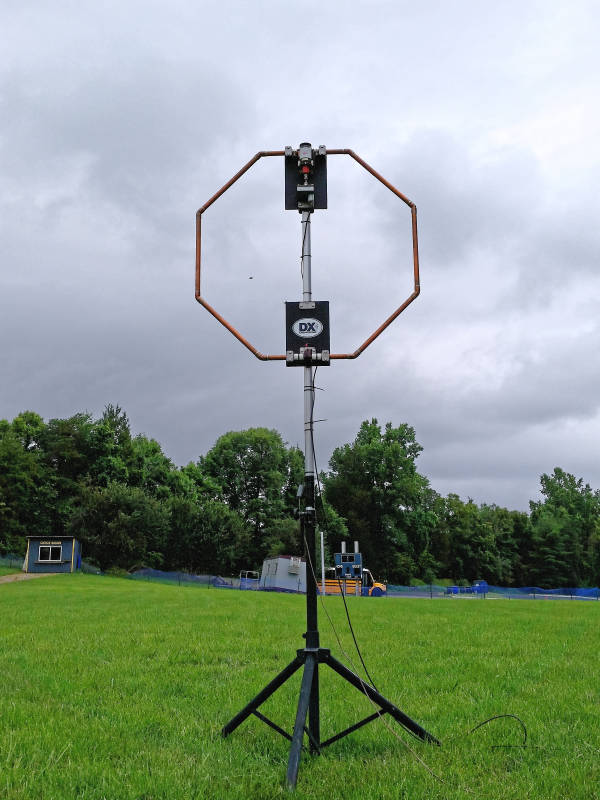
It has traveled to the beach more that once and been a Field Day antenna at least twice. Read the details here…
A year in the weather
For pandemic Field Day 2020 I used this antenna long with the AHVD with some success. This all happened on my back deck. The small loop antenna has been on this deck ever since. The copper has taken on the usual darkening due to oxidation.
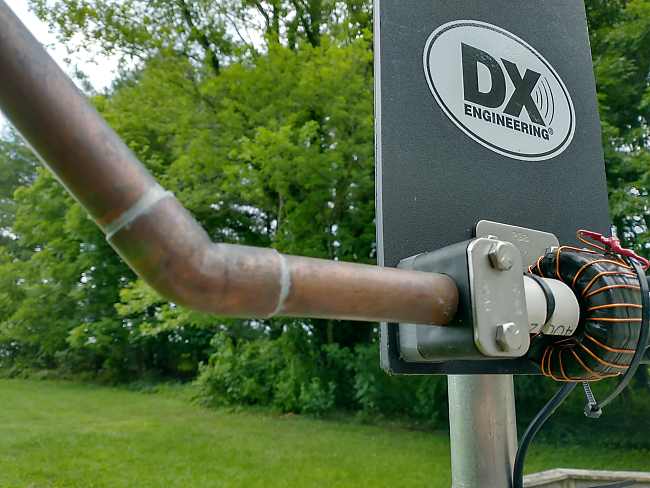
I’ve seen darker copper, but it does show some oxidation. I didn’t coat the copper with any materials so am a bit surprised to not see more oxidation. I’m more surprised that DXE sticker looks this good after a year in the great outdoors.
Does oxidation change conductivity of copper?
If you search google for conductivity of copper oxide, you will find many references suggesting it doesn’t conduct as well as pure copper. This often leads to the conclusion that oxidized copper wire will have a bit less conductivity and, hence, less efficiency.
However, we have the possibility a non-conductive oxide coating simply becomes inert leaving the pure copper beneath freely able to perform electrical conduction as if little changed. After all, when calculating skin-depth of an insulated wire, one wouldn’t start at the diameter of the insulator. The same probably applies to non-conductive oxide coatings.
Or does it?
Small loops are a good test apparatus
Small loops like this are very sensitive to the conductivity of its conductors. With radiation resistance values in the tens of milliohms, any electrical resistance in the antenna’s construction has a relatively strong effect in antenna efficiency. Bandwidth is inversely proportional to conductance and proportional to resistance. If the conductivity worsens due to oxidation, the change in bandwidth on a high Q antenna like this one should be noticeable.
Therefore we have a chance to see if the resistance of the 3/4 inch copper pipe changed by measuring the bandwidth of the antenna and comparing to my original 2015 measurement.
Six years of difference between measurements
Here is S11 of this antenna in August 2015 and July 2021.
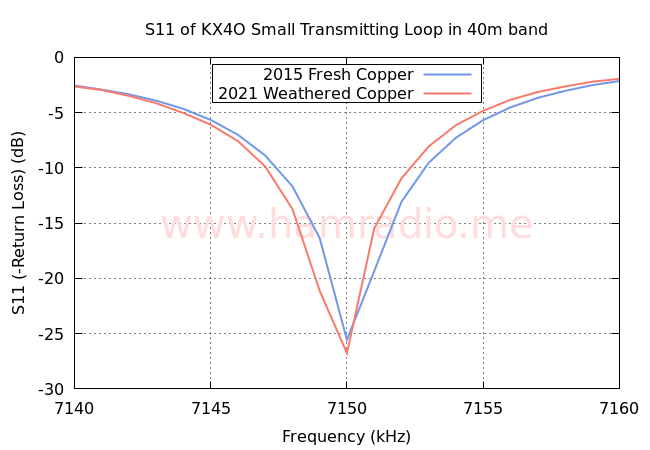
Here is the same data expressed as VSWR.
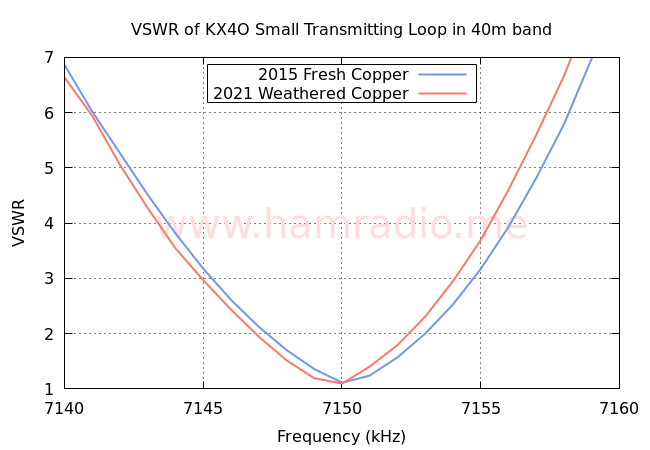
Other than a slight tuning difference, the bandwidth is pretty much the same then as now. In fact the tuning difference helps us see the two traces. Viva la slightly inaccurate tuning.
Observations
Relatively gargantuan conductors comprised of copper tubing don’t seem to notice six years age and one full year in the weather. This, of course, might matter more for smaller conductors at higher frequencies with thinner skin effect conduction depth… and then only for high Q antennas such as this HF STL. Really though, a higher frequency antenna made of copper isn’t likely to be an electrically small, high Q design with sub one ohm radiation resistance. So… that Yagi-Uda you made of 1/2 inch copper tubing for 2m isn’t likely to ever notice oxidation.
Of course there are different ways copper can oxidize based on their environment. The classic green color examples may yield different results. If I can get copper to turn green where I live, I will test this.
Conclusion
Want to build an antenna with copper tubing? I’d say proceed with little worry about eventual oxidation.
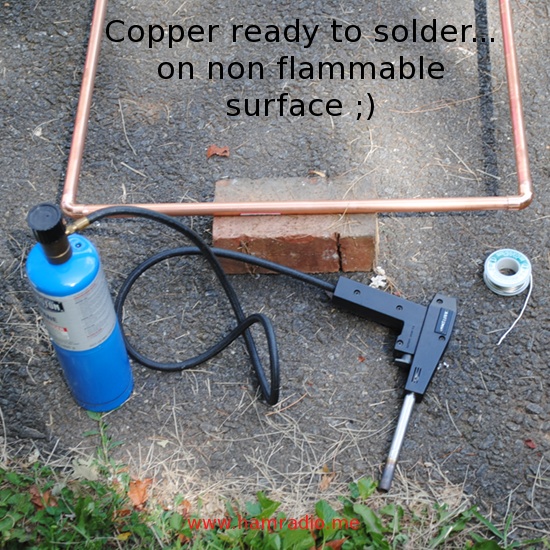
Good conductor: fine.
Good insulator: also fine.
Mediocre conductor: that's when you have loss problems!
Looks like the oxide counts as a good insulator.